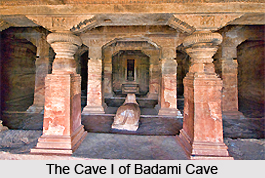 The Chapel of St. Xavier in Old Goa was located within the College of St. Paul. This is located on the bank of the Mandovi River. This chapel was built in the year 1545. It was dedicated either to St. Anthony or St. Jerome. The chapel was used by St. Francis Xavier who preached his mission in the region more than 450 years ago. The chapel was re-dedicated to him after his canonization in 1622. The chapel, which houses the mortal remains of the saint, is believed to have been built by Saint Francis himself. The original Chapel however fell into ruins in 1570 and the present Chapel was rebuilt in 1884.
The Chapel of St. Xavier in Old Goa was located within the College of St. Paul. This is located on the bank of the Mandovi River. This chapel was built in the year 1545. It was dedicated either to St. Anthony or St. Jerome. The chapel was used by St. Francis Xavier who preached his mission in the region more than 450 years ago. The chapel was re-dedicated to him after his canonization in 1622. The chapel, which houses the mortal remains of the saint, is believed to have been built by Saint Francis himself. The original Chapel however fell into ruins in 1570 and the present Chapel was rebuilt in 1884.
Architecture of Chapel of St. Xavier
The architectural pattern of the church is of Doric style with laterite plasters and lime mortar extensively used in the construction process. The church is a plain chapel with only one altar and tiled roof supported by wooden rafters. In the year 1624 the body of St. Francis was taken to the Chapel of St. Francis from Casa Professade Bom Jesus. The silver casket was a simple one. However in 1637 the body was transferred into a new silver casket which is considered as one of the best specimens of Italian art in India. There are altogether thirty two silver plates on all the four sides of the casket that illustrate the different episodes relating to the saint`s life. The original chapel was in existence in 1545. Later it fell into ruins with the outbreak of the epidemic and the consequent abandoning of the College of St. Paul in 1570. The present chapel was built in 1884. The simplicity of the church adds to the charm of the place. There are scripts, which endorse the fact that the church was dedicated to St Anthony or St Jerome, the two chapels of the garden of St Paul`s college. During the Feast of St Francis Xavier, the church is beautifully decorated with flowers and lighting. People flock to pray to the Lord.
Renovation of Chapel of St. Xavier
Conservation work was undertaken of Chapel of St. Xavier. Two collapsible gates to the southern and eastern entrances were fixed. Even the wooden planks of the first floor verandah that were in dilapidated state were removed and replaced.





















